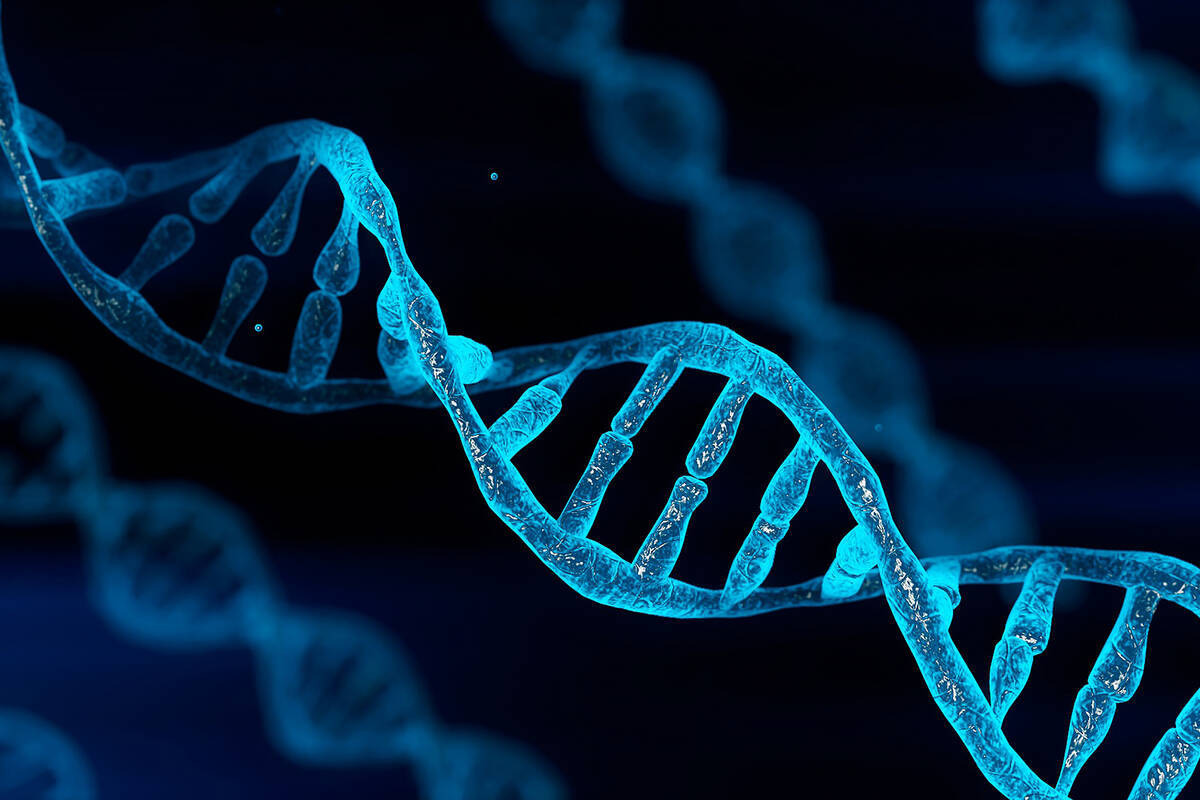Study links loss of Y chromosomes to earlier death in men
What makes you, you?
Every human cell has a pair of chromosomes that give your body a blueprint for how to grow and develop starting as a single cell inside a uterus.
But in a recent study from the Cedars-Sinai cancer center, scientists have found that not only do chromosomes provide the building blocks of human life, they may also play an integral role in fighting disease.
Dan Theodorescu, director of Cedars-Sinai Cancer and corresponding author of the study, and a team of leading researchers from across the country published their findings in Nature last month.
The cells of those born male contain an X chromosome and a Y chromosome that make a pair and give instructions on which genes should be expressed in the body, the researchers said.
As males age, they begin to lose some of their Y chromosomes due to rapid cell turnover, the study said.
“This study for the first time makes a connection that has never been made before between loss of the Y chromosome and the immune system’s response to cancer,” Theodorescu said in a release. “We discovered that loss of the Y chromosome allows bladder cancer cells to elude the immune system and grow very aggressively.”
The researchers analyzed two groups of males, divided by their amount of Y chromosomes in their bodies.
The groups included 300 males, ranging in age from 34 to 90 from multiple races, and they all had locally advanced muscle-invasive bladder cancer.
“The Y chromosome contains the blueprints for certain genes,” according to the release. “Based on the way these genes are expressed in normal cells in the bladder lining, investigators developed a scoring system to measure loss of the Y chromosome in cancers.”
The study participants were given a rating of high or low “Y chromosome signature,” and their progress was followed over time.
The researchers found that “patients with (a) low Y chromosome gene expression score had significantly worse overall survival compared with those with higher expression,” the study said.
The test showed that the Y chromosome played a role, but the researchers didn’t know why. So they tried another test in mice.
Understanding the process
The researchers grew bladder cancer cells in mice with intact immune systems. They grew tumors in some mice that had full Y chromosomes and some that were lacking Y chromosomes.
The researchers found that the bladder cancer cells grew at a “much faster” rate in mice that had fewer Y chromosomes compared to those with many, according to the release.
“The fact that we only see a difference in growth rate when the immune system is in play is the key to the ‘loss-of-Y’ effect in bladder cancer,” Theodorescu said in the release. “These results imply that when cells lose the Y chromosome, they exhaust T-cells. And without T-cells to fight the cancer, the tumor grows aggressively.”
Previous research has shown that Y chromosome loss is present in multiple types of cancers in males, including between 10 and 40 percent of bladder cancers, according to the release.
Losing Y chromosomes has also been linked to heart disease and Alzheimer’s, both conditions that have a higher prevalence in older people.
The aggressive nature of the cancers doesn’t mean they aren’t treatable.
“Fortunately, this aggressive cancer has an Achilles’ heel, in that it is more sensitive than cancers with an intact Y chromosome to immune checkpoint inhibitors,” co-author Hany Abdel-Hafiz said in the release.
Body’s tiny soldiers
Immune checkpoint inhibitors work by preventing T-cell exhaustion caused by your immune system fighting off cancer cells. T-cells attack cancer cells and cause them to become inflamed and die, but your body makes a limited amount of T-cells, and if there is too much cancer to fight, the T-cells can’t keep up, according to cancer.net.
Immune checkpoint inhibitors prevent your body from getting too low on T-cells, and they are one of the preferred bladder cancer treatments, according to the release.
“T-cell exhaustion can be partially reversed with checkpoint inhibitors, but if we could stop it from happening in the first place, there is much potential to improve outcomes for patients,” Theodorescu said in the release.
While the study was done exclusively on Y chromosomes, unique to males, Theodorescu said the findings of the study can be applied to all sexes because chromosomal changes can also occur on the X chromosome.
“The fundamental new knowledge we provide here may explain why certain cancers are worse in either men or women, and how best to treat them. It also illustrates that the Y chromosome does more than determine human biologic sex,” Theodorescu said.

















